
by Gideon Marcus
Mars ho!
Well, this is exciting! For the first time ever, two identical Mariner probes are on their way to an interstellar destination. On March 27, Mariner 7 blasted off for Mars, joining its sister, Mariner 6, which was launched last month.

Normally, twin probes are launched for redundancy, and it's a good thing. Venus-boundMariner 1 died when its booster exploded back in '62. Mars-bound Mariner 3 never hatched from its egg (the shroud of its Atlas-Agena rocket) back in 1964. Mariner 5, which went to Venus in 1967, was a solo mission (indeed, a spare Mariner of the 3/4 class).
But now we've got two Mariners winging their way to the Red Planet, which means we'll get twice the coverage and a redundant set of data, always a welcome occurrence for scientists! We'll have more on them when they pass by Mars in July.
Mack ho!
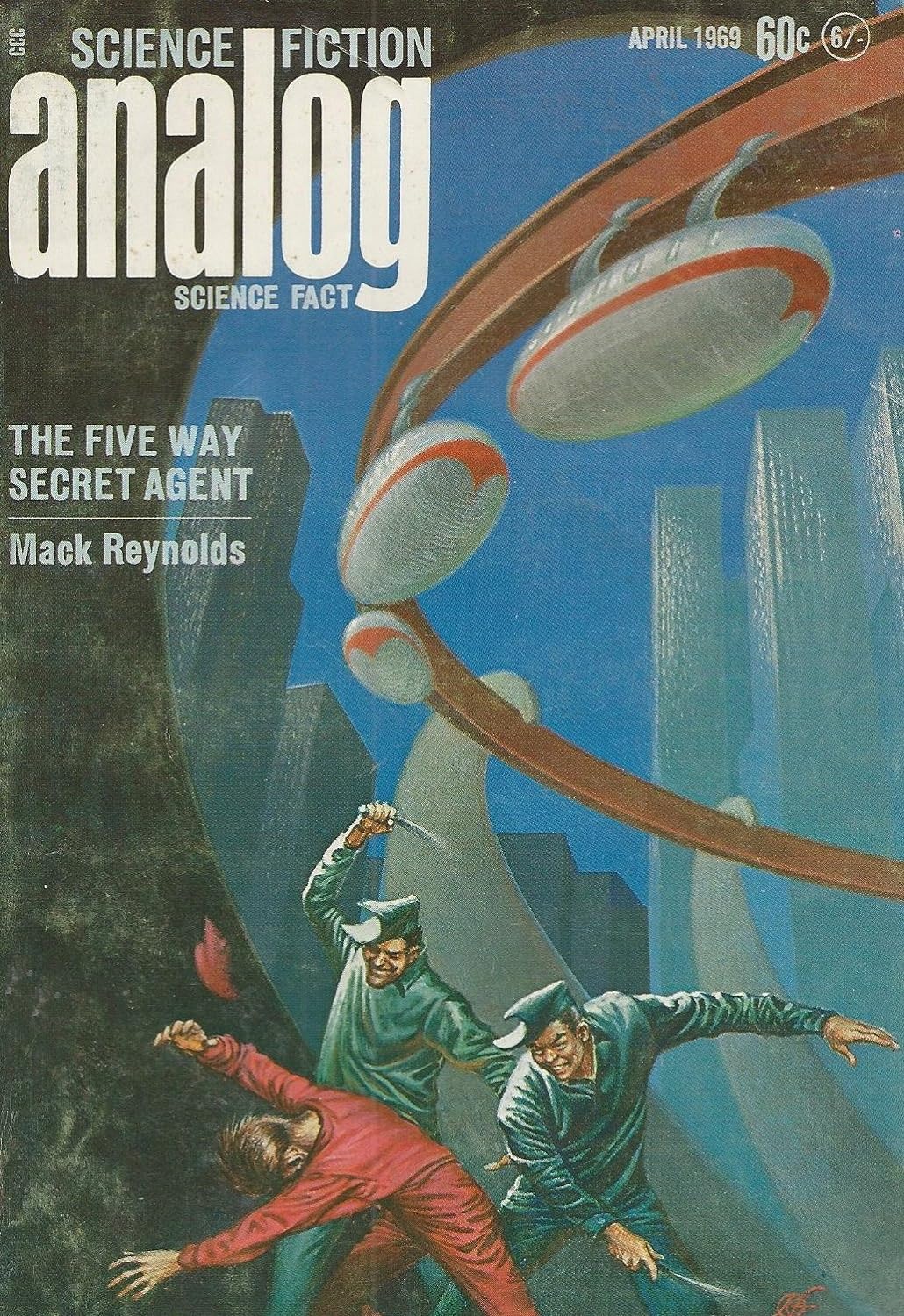
by Kelly Freas
Just as we have two Mariners dominating the head of this article, so we have science fictioneer Mack Reynolds dominating this latest issue of Analog science fiction. Under his own name, and under his pseudonym "Guy McCord", more than half of this issue is a Reynolds contribution. If you like the guy, you'll like the mag. If not…
The Five Way Secret Agent (Part 1 of 2), by Mack Reynolds
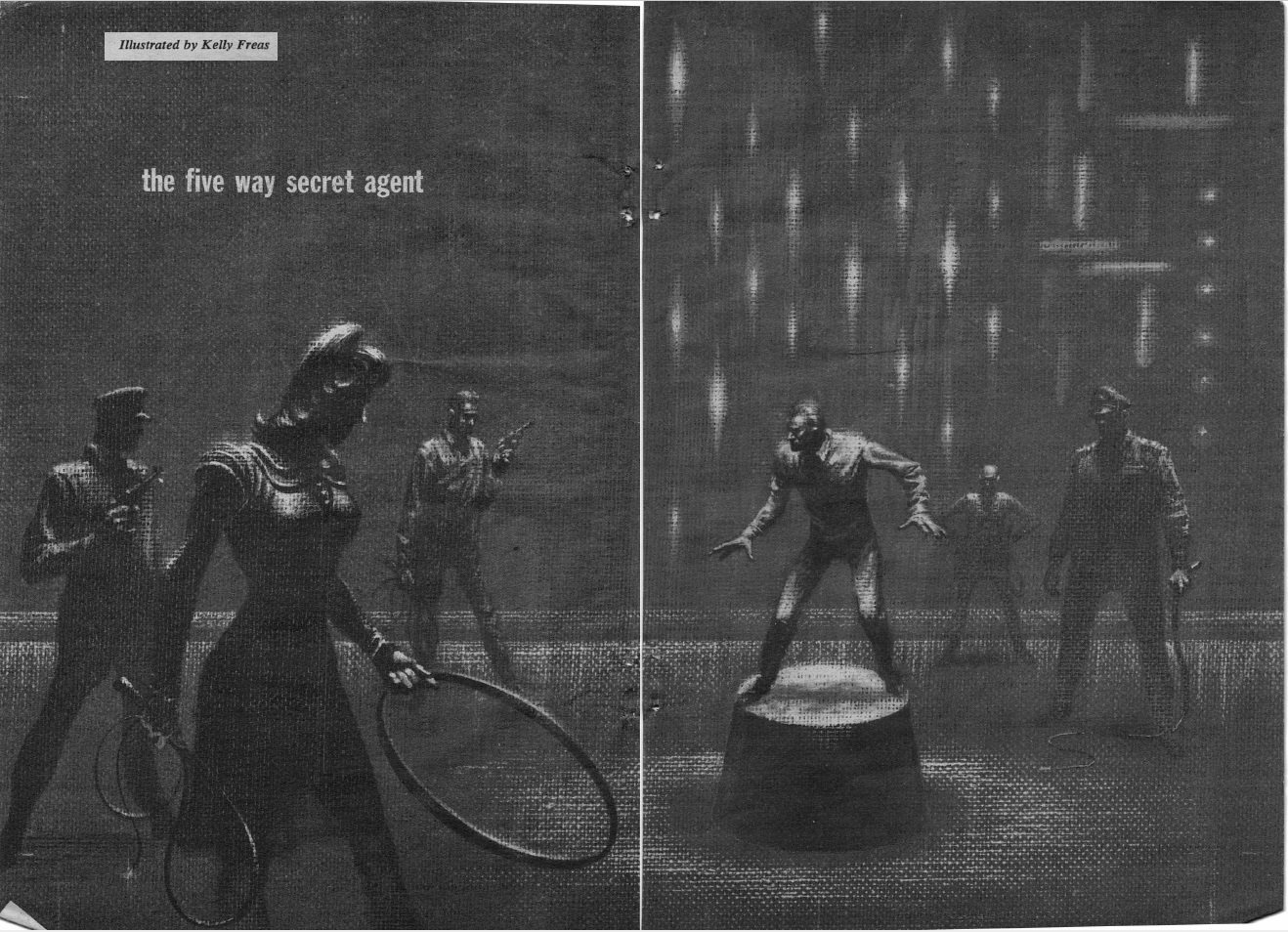
by Kelly Freas
We once again return to the Reynolds' late 20th Century, where America languishes under the stratified People's Capitalism. This novel is also the second adventure of one of the last private detectives, Rex Bader (whose first job was just a couple of months ago. As with that freshman outing, Bader is offered a job that seems too good to be true, and he refuses, but no one else buys that he did.
In this case, the job was offered by the head of one of the world's biggest corporations. He wants Bader to go to cross the Iron Curtain to contact other corporation buffs so as to help take down the Meritocracy—the powers that be that have entrenched themselves in the highest levels of society.
The mob also contacts Bader, wanting him to be their double agent. Then the Defense Department gets involved. Finally, a group of latter-day Technocrats make their pitch. Presumably, the "fifth way" will be Rex Bader's own.
This book is typical Reynolds: the setting has been well established over the years, all the way back to the Joe Mauser, Mercenary days. There are historical dissertations woven in at every opportunity, mostly on early 20th Century political theory. The writing is serviceable, somewhat wry—a more grounded Keith Laumer.
What makes this particular piece stand out are the new wrinkles Reynolds introduces. First, this is the first time we've learned how elections work in this world: it's based on income—one vote for every dollar earned (investment income does not impart voting rights). Thus, the masses on "Negative Income Tax" have no franchise.
Reynolds continues to invent plausible future technology, too. My favorite is the pocket TV/phone/credit card/identity all citizens carry. A handy device, but also vulnerable to surveillance—which is done by computers which listen for key words; if they hear any, they alert a government agent.
So on the one hand, as far as quality of writing and enjoyment is concerned, I'd give this piece three stars. But I admire Reynolds for doing stuff few others do, so I'm actually awarding four.
Hey But No Presto, by Jack Wodhams
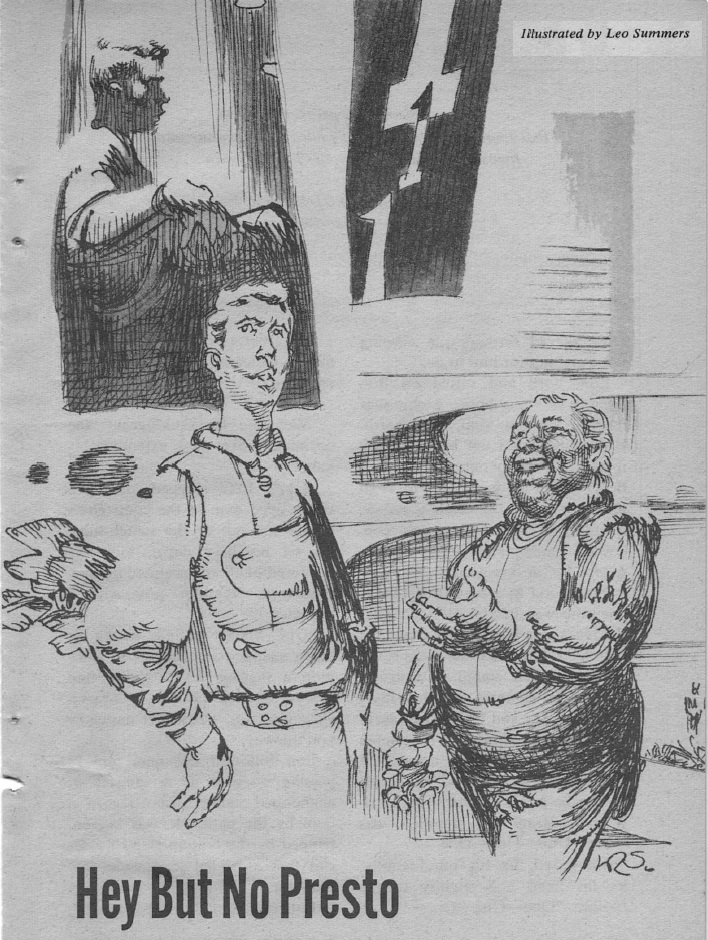
by Leo Summers
Folks are being snatched out of psionic teleportation booths as they try to go to Earth. They get sent to this backwater planetary resort where they are charged outrageous rates to stay in mediocre lodgings. They stay because the cost to go home is set even higher. An interstellar cop is sent to investigate.
This one-note tale is so padded, it could replace a warehouse of pillows. One star.
They're Trying to Tell Us Something (Part 2 of 2), by Thomas R. McDonough
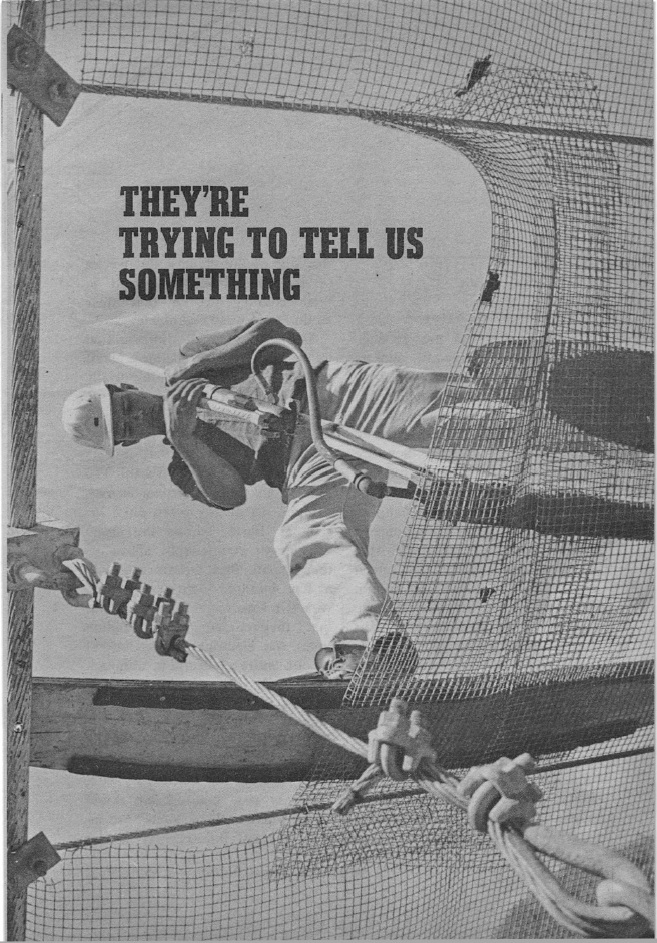
Last month, Tom McDonough talked about pulsars—those rapidly beeping star-type objects—and did his darndest to convince us that they are artificial beacons operated by Little Green Men (LGM).
This second part is more of the same, though he actually does mention other possibilities, including the most fashionable one that they are rotating neutron stars. My problem with this segment is it is heavy on the layman's lingo and light on the showing of work. It all feels a bit fluffy. Also, he talks about how pulsars emit light bursts at twice the frequency as their radio bursts, and he makes it seem like that's mysterious. If the pulsar is really a rotating neutron star, then it makes sense for any emissions to be linked. Why we only get radio signals from one side, I don't understand off the top of my head, but I suspect anyone with a Bachelors in Physics could tell me.
Three stars.
Cultural Interference, by Walter L. Kleine
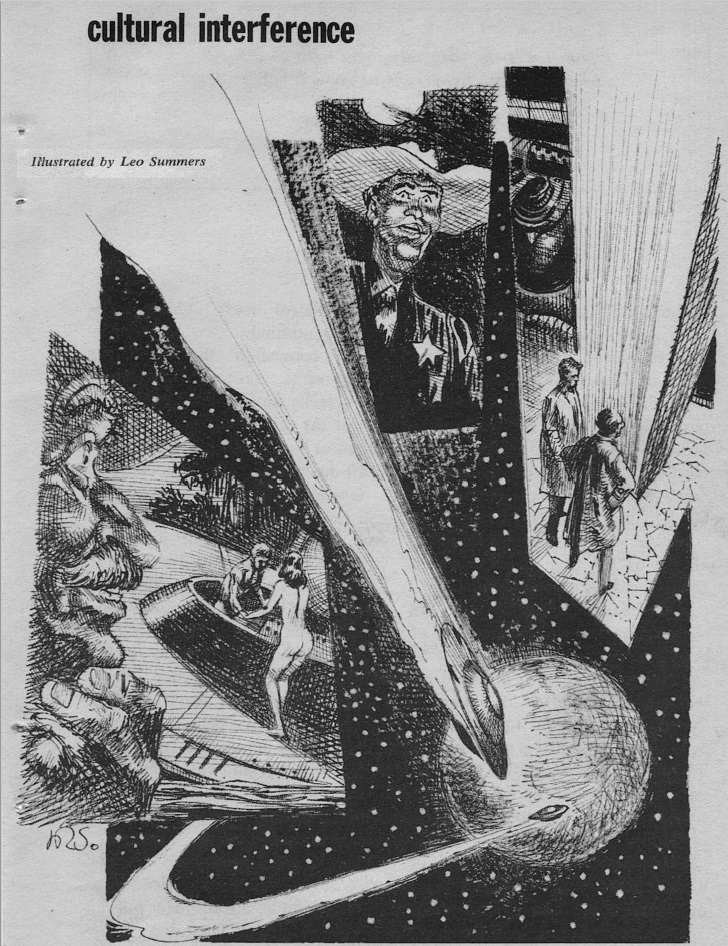
by Leo Summers
A couple of scientists begin an experiment with broadcast power. Coincidentally, a couple of extraterrestrial spaceships accidentally intercept and soak up the power, causing them to crash. Chaos ensues.
Wireless power seems to be the rage these days, figuring prominently in Keith Laumer's serial, And Now They Wake. This particular tale is overpadded and pointless.
Two stars.
Opportunist, by Guy McCord

by Kelly Freas
This is the third tale of Caledonia, a backwards planet probably in the same universe as his United Planets tales in which every world has its own uniquely evolved political and social structure. Caledonians all hail from a single crashed colony ship, and their culture is a mix of Scots and indigenous American, based on the few books that survived planetfall (shades of Star Trek's "A Piece of the Action".
In this installment, Caledonia has been largely subjugated by mining concerns from Sidon, and the native Caledonians must resort to guerrila tactics. John of the Hawks, Chief Raid Cacique of the Loch Confederation is captured by the Sidonians and offered a job in their civilian government. After being told the virtues of civilization and capitalism, he decides to hang up his claidheamhor and war bonnet and sell out.
I din't like it. Two stars.
Oh ho!
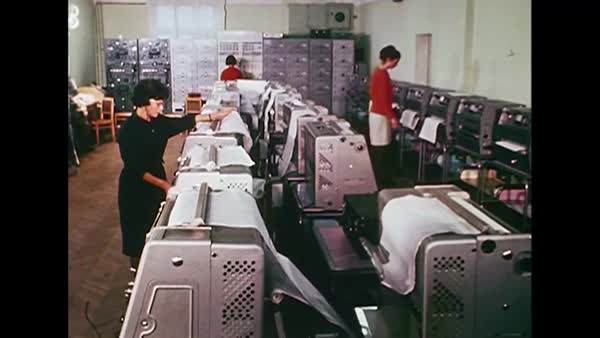
Well now, here is a case of science fiction definitely being less compelling than science. With the exception of the serial, this was a drab ish, barely scoring 2.7. This puts Analog under Fantasy and Science Fiction (3), IF (3.1), Galaxy (3.5), and New Worlds (3.6). Campbell's mag only beat out the usual losers: Fantastic (2.5), Famous #8 (1.8), and Famous #9 (2).
From eight mags, you could barely fill two big ones with the good stories this month, although part of the reason for that is Famous being so awful. Women produced just 7% of the new fiction stories this month.
I guess the moral is: read your newspapers and your Pohl (and UK) mags first. Pick up Analog only if you've finished the rest. Or if you really like Mack Reynolds…

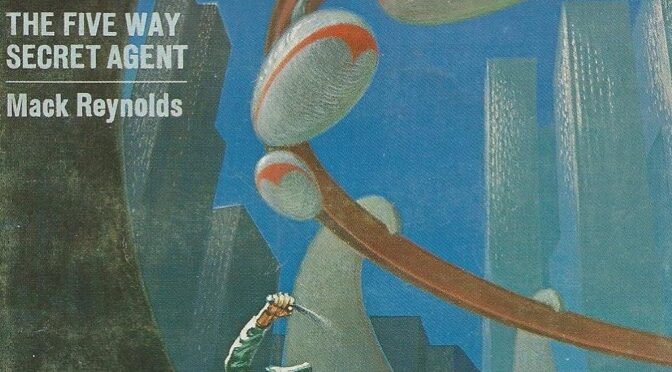


I like Mack Reynolds, and this issue wasn't all that pleasing to me.
"Secret Agent" is shaping up fine, but we've seen a lot of this in other Reynolds stories. I actually found myself being constantly distracted by the changes to the way People's Capitalism works. Gone suddenly are a citizen's ten shares of Basic Inalienable, replaced by the Negative Income Tax. The two achieve similar results by different mechanisms. Economist Milton Friedman's been pushing NIT the last few years; I guess Mack's decided to play with the idea for a while. I'm also not convinced this Rex Bader is the same as the one from "Extortion, Inc." Sure, they look the same, but Mack did this with Paul Kosloff last year in "Spying Season" and "The Computer Conspiracy." Absolutely, 100% the same guy, but the two stories can't possibly have happened to the same person.
I continue to not like Jack Wodhams. He's come close once or twice, but this certainly wasn't one of them.
The science article was slightly better than Part 1, but not much. There are so many strong contenders for a natural explanation that there's no reason to even consider the LGM hypothesis.
I didn't particularly care for "Cultural Interference" either. You can see it checking off a few of Campbell's boxes, and it fits the template of a "humorous" Analog story to a T.
I haven't really liked any of the stories about Caledonia. This is probably the worst of the three.